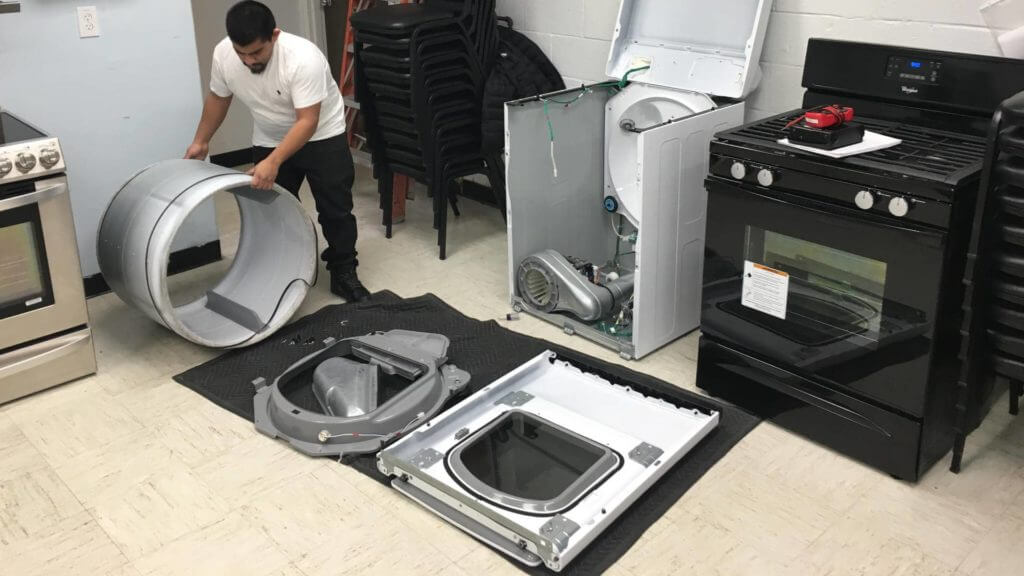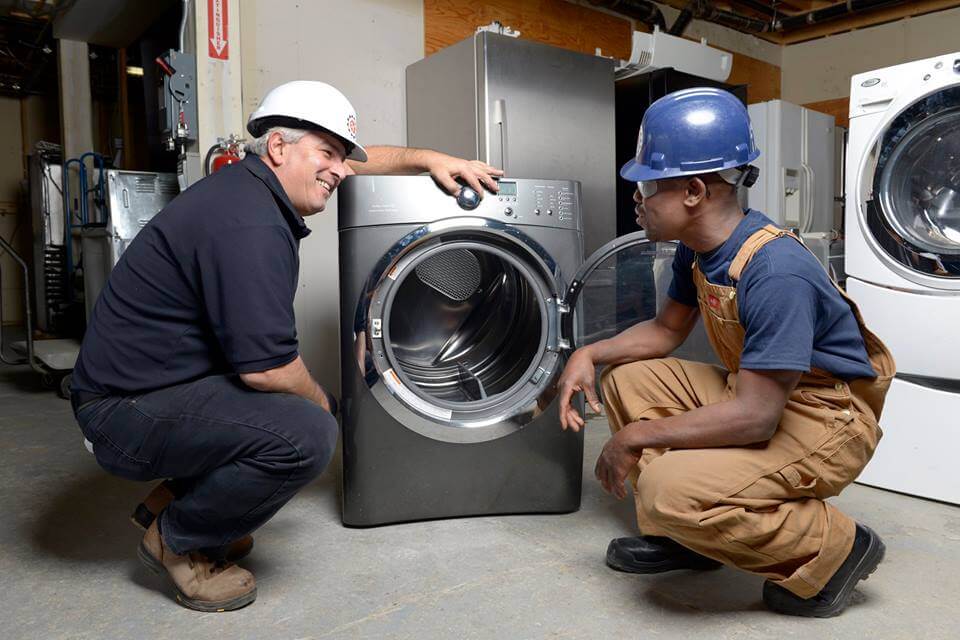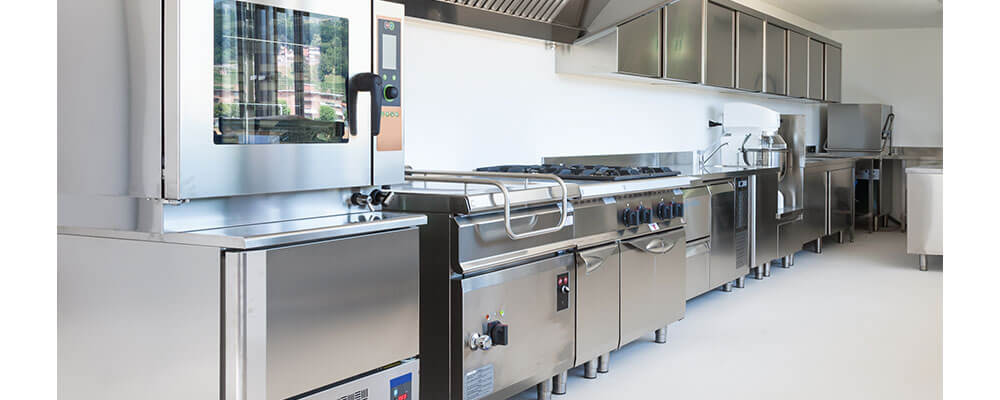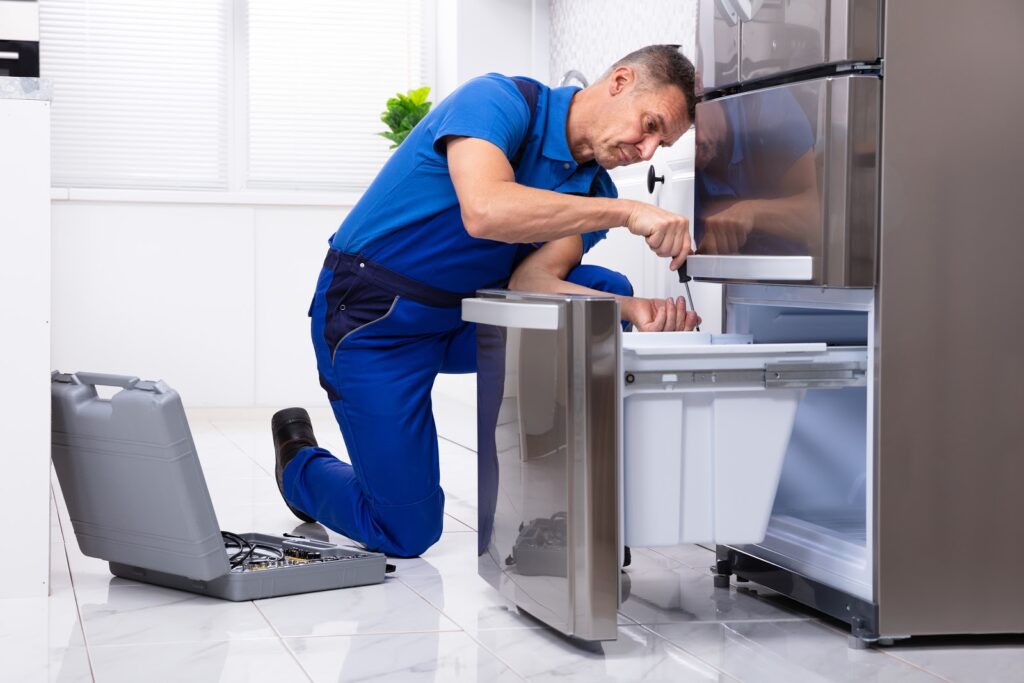
Small businesses are the backbone of the economy, and they often operate on tight budgets and even tighter schedules. In this hustle and bustle, the last thing you need is a malfunctioning appliance throwing a wrench into your daily operations. From coffee machines to refrigerators, these appliances play a pivotal role in keeping your business running smoothly. In this comprehensive guide, we’ll delve deeper into the world of appliance repair for small businesses, covering everything from common appliances to the signs that it’s time for a repair, the DIY vs. professional repair debate, and tips on finding the right appliance repair service.
Why Is Appliance Repair Essential for Small Businesses?
Maximizing Efficiency
Small businesses rely on every minute of the day to generate revenue, and downtime can be a costly affair. When your coffee machine refuses to brew that morning pick-me-up or your refrigerator decides to take an unscheduled break, the consequences can be dire. Appliance repair is the key to getting your business back on track without missing a beat.
Saving Money
Small business owners are no strangers to budget constraints. Replacing an appliance can be a significant expense, and in many cases, it’s more cost-effective to repair the existing one. Investing in appliance repair can save you money in the long run, allowing you to allocate your budget more effectively.
Safety and Health Compliance
Small businesses are subject to stringent health and safety regulations. A malfunctioning appliance not only disrupts your operations but can also put you in violation of these regulations. By addressing appliance issues promptly, you can maintain a safe environment for your customers and employees while staying in compliance with the law.
Common Appliances in Small Businesses

Before we delve into the intricacies of appliance repair, let’s take a closer look at some of the most common appliances you’re likely to find in small businesses:
| Appliance | Common Use |
| Coffee Machines | Fueling the caffeine fix |
| Refrigerators | Keeping perishables fresh |
| Ovens and Stoves | Cooking and baking |
| Dishwashers | Efficient dish cleaning |
| Ice Machines | Churning out cold drinks |
| Cash Registers | Handling transactions |
| Freezers | Storing frozen goods |
| Microwaves | Quick heating and cooking |
When Should You Consider Appliance Repair?
Now that we’ve established the significance of appliance repair, let’s take a closer look at the telltale signs that it’s time to call in the professionals:
- Strange Noises: Is your coffee machine producing a cacophony of clanks and clangs? Are your refrigerators humming an eerie tune? Strange noises emanating from your appliances are an unmistakable sign that something might be amiss. Don’t ignore these auditory SOS signals.
- Temperature Fluctuations: Is your refrigerator turning your lettuce into an iceberg? Or perhaps your oven is failing to reach the desired temperature. Inconsistent temperature control is a clear indication that your appliance needs immediate attention. Temperature irregularities can lead to issues with the quality of your products and even pose health risks.
- Leaks and Puddles: Discovering unexplained puddles under your appliances is a definite red flag. Leaks can lead to electrical issues and even create safety hazards. Addressing this issue promptly is crucial to avoid more extensive damage.
- Burnt Smells: The unmistakable scent of burnt plastic or wires is a surefire sign that your appliance needs immediate attention. Ignoring these olfactory warnings can lead to electrical fires or further damage to the appliance.
- Tripped Circuits: If your appliances are constantly causing electrical circuits to trip, it’s more than just an inconvenience. It’s a safety hazard. An appliance that continuously overloads circuits should be examined by a professional technician as soon as possible.
DIY vs. Professional Repair: Which Route to Take?
The DIY vs. professional repair debate has been a long-standing one. Let’s weigh the pros and cons to help you make an informed decision.
DIY Appliance Repair
Pros:
- Cost-Effective: If you’re handy with tools, you can save money by tackling minor repairs yourself.
- Learning Experience: DIY repairs can be an opportunity to acquire new skills and knowledge.
- Immediate Action: You can start the repair right away without waiting for an appointment.
Cons:
- Risk of Further Damage: If you lack experience, you might inadvertently make the problem worse, leading to more extensive and costly repairs.
- Safety Concerns: Dealing with electrical appliances can be dangerous, especially if you’re not familiar with the necessary safety precautions.
- Time-Consuming: DIY repairs can be time-consuming, and time might be a luxury you can’t afford.
Professional Appliance Repair

Pros:
- Expertise: Professional technicians are trained and experienced in appliance repair, ensuring that the job is done correctly and efficiently.
- Safety: Professionals understand the potential hazards associated with appliance repair and take appropriate safety precautions.
- Time-Efficient: Professional repairs are typically quicker, reducing downtime for your business.
Cons:
- Cost: Professional repairs can be more expensive than DIY solutions, as you’re paying for their expertise and labor.
- Scheduling: You may need to wait for an appointment, which can be a challenge if the repair is urgent.
- Dependency: You rely on someone else’s schedule and availability for the repair to be completed.
Finding the Right Appliance Repair Service
If you’ve decided to opt for professional appliance repair, it’s essential to find a reliable and trustworthy service. Here are some tips to guide you:
- Check for Credentials: Always look for credentials and certifications when choosing an appliance repair service. Are the technicians licensed and insured? This will give you peace of mind that they know what they’re doing and can handle the job safely and effectively.
- Read Reviews: Customer reviews can provide valuable insights into the reputation and reliability of an appliance repair service. Read what other businesses have experienced with the service to get a sense of their expertise and customer satisfaction.
- Ask About Warranty: A reputable appliance repair service should offer a warranty for their work. This demonstrates their confidence in the quality of their repairs and provides you with a safety net in case the issue reoccurs.
- Get a Quote: Before committing to an appliance repair service, ask for a detailed estimate. This helps ensure there are no hidden costs and allows you to compare prices with other services. Be wary of services that provide vague or overly general estimates.
The Cost of Appliance Repair
Cost is often a significant concern for small businesses. The expense of appliance repair can vary depending on several factors, including the type of appliance and the extent of the damage. However, as a rough estimate:
- Dishwasher Repair: You can expect to pay between $100 to $200 on average for dishwasher repairs.
- Refrigerator Repair: Costs typically range from $200 to $400 for refrigerator repairs.
- Oven or Stove Repair: Budget around $100 to $200 for oven or stove repairs.
- Washing Machine Repair: The bill could be anywhere from $150 to $300 for washing machine repairs.
Keep in mind that these are rough estimates, and the final cost may vary based on the complexity of the problem and your geographical location. Some repair services may charge a diagnostic fee to assess the issue before providing a quote.
Preventing Appliance Breakdowns
While addressing appliance issues is crucial, it’s equally important to implement preventive measures to extend the life of your appliances and reduce the likelihood of breakdowns. Here are some preventive steps you can take:
- Regular Maintenance: Don’t wait for a problem to surface before addressing it. Implementing regular maintenance schedules can help you catch potential issues early and keep your appliances in optimal working condition.
- Read the Manual: Many of us are guilty of neglecting user manuals, but they often contain valuable information about using and maintaining your appliances. Familiarize yourself with the manual’s recommendations for care and maintenance.
- Proper Use: Using appliances for purposes they weren’t designed for can lead to trouble. Avoid overloading appliances, misusing them, or pushing them beyond their intended capacity.
- Cleanliness: Keep your appliances clean and free of dust, dirt, and debris. Accumulated grime can clog essential components, leading to performance issues and breakdowns.
- Quick Response: If you notice a problem, don’t procrastinate. The sooner you address it, the less likely it is to escalate into a more significant and costly issue. Quick action can save you time, money, and the headache of prolonged downtime.
Final Words
Appliance repair for small businesses is not merely about fixing broken gadgets; it’s about ensuring your business runs smoothly, efficiently, and safely. It’s about saving money, maintaining compliance with health and safety regulations, and serving your customers without disruptions. So, when your appliances start acting up, don’t be a hero (or a martyr). Whether you choose the DIY route or opt for professional help, what matters is that you act swiftly and decisively. After all, in the world of small businesses, every penny counts, and a functioning coffee machine might just be the unsung hero of your success. Small investments in appliance repair today can save you from more significant headaches tomorrow. Remember, in the fast-paced world of small businesses, downtime is a luxury you can’t afford. So, keep those appliances humming, and keep your business thriving.
Frequently Asked Questions (FAQ) About Appliance Repair for Small Businesses
Are you a small business owner seeking answers to common questions about appliance repair for your establishment? We’ve compiled a list of frequently asked questions to help you navigate the world of appliance maintenance and repair.
1. When should I consider professional appliance repair for my small business?
Professional appliance repair should be considered when you encounter issues such as strange noises, temperature fluctuations, leaks, burnt smells, or frequent circuit trips. These are indicators that your appliance requires expert attention to prevent further damage and disruptions to your business.
2. What types of appliances are commonly found in small businesses?
Common appliances in small businesses include coffee machines, refrigerators, ovens and stoves, dishwashers, ice machines, cash registers, freezers, and microwaves. These appliances are essential for various business operations.
3. What are the benefits of professional appliance repair over DIY solutions?
Professional appliance repair offers expertise, safety assurance, and time efficiency. Technicians are trained to handle complex repairs, ensuring the job is done correctly and quickly. Additionally, they take safety precautions to prevent accidents. While DIY solutions can be cost-effective, they carry the risk of further damage and may consume more time.
4. How can I find a reliable appliance repair service for my small business?
To find a reliable service, you should:
- Check for credentials and certifications of the technicians.
- Read customer reviews to gauge the service’s reputation.
- Ask about warranties to ensure confidence in the repair work.
- Get a detailed estimate to understand the costs involved.
5. What is the average cost of appliance repair for small businesses?
The cost of appliance repair can vary based on factors like the type of appliance and the extent of the damage. On average, expect to pay approximately:
- $100 to $200 for dishwasher repair.
- $200 to $400 for refrigerator repair.
- $100 to $200 for oven or stove repair.
- $150 to $300 for washing machine repair.
Please note that these are rough estimates and actual costs may differ based on location and the complexity of the issue.
6. What preventive measures can I take to avoid appliance breakdowns in my small business?
To prevent appliance breakdowns, consider:
- Implementing regular maintenance schedules.
- Reading user manuals for appliance care guidelines.
- Using appliances as intended and avoiding overloading them.
- Keeping appliances clean and free of debris.
- Responding promptly to issues to prevent them from escalating.
7. How important is appliance repair for small businesses?
Appliance repair is vital for small businesses as it ensures efficiency, cost-effectiveness, and compliance with health and safety regulations. Timely repairs prevent revenue loss due to downtime and maintain a safe environment for customers and employees.
8. Is it worth repairing appliances, or should I replace them instead?
The decision to repair or replace an appliance depends on factors such as the age of the appliance, the cost of repair, and your budget. If the appliance is relatively new and the repair cost is reasonable, it’s often more cost-effective to repair it. Older appliances with frequent issues may be candidates for replacement.
9. How can I minimize business disruptions during appliance repair?
To minimize disruptions, consider scheduling repairs during off-peak hours or on weekends, if possible. Additionally, have a contingency plan in place to continue essential operations while the appliance is being repaired.
10. Can appliance repair services work with specific brands and models of appliances?
Most appliance repair services are experienced in working with a wide range of brands and models. It’s a good practice to check with the service provider to ensure they can handle your specific appliance.
